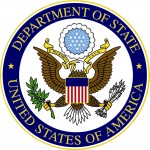The Secretary’s Special Advisor for Civil Society and Emerging Democracies has gone public with the Diplomacy Lab, their program for crowdsourcing macro-work from universities.
Great stuff!
Diplomacy Lab
Harnessing America’s Greatest Universities to Help Solve the World’s Toughest Challenges
Overview
Diplomacy Lab is designed to address two priorities: first, Secretary Kerry’s determination to engage the American people in the work of diplomacy. And second, the imperative to broaden the State Department’s research base in response to a proliferation of complex global challenges. The initiative enables the State Department to “course-source” research and innovation related to foreign policy by harnessing the efforts of students and faculty experts at universities across the country. Students participating in Diplomacy Lab explore real-world challenges identified by the Department and work under the guidance of faculty members who are authorities in their fields. This initiative allows students to contribute directly to the policymaking process while helping the State Department tap into an underutilized reservoir of intellectual capital. Teams that develop exceptional results and ideas are recognized for their work and may be invited to brief senior State Department officials on their findings.
The Lab
- University Partners – Partner universities recruit student teams to take on Diplomacy Lab projects and identify faculty members to guide each team. Implementation of the program at partner schools is the responsibility of each university. Projects normally take place in the context of a credited course, but may be pursued on an extracurricular basis in some cases. The Lab will undergo two pilot semesters starting in fall 2013 with two universities and expanding in spring 2014 to approximately five universities. In the event of favorable results, the Lab will launch nationwide in the 2014-15 academic year with 10 to 20 partner institutions.
- Project Identification – The State Department collects project requests from offices a broad range of offices and bureaus. Given the duration of an academic semester, topics will not be issues that are expected to change significantly in the near term. Examples include:
- Research to support policymaking (e.g. investigating the potential impact of 3D-printing on small arms proliferation);
- Comparative analysis (e.g. evaluating gender dynamics in Afghanistan and Iraq); or
- Data analysis (e.g. compiling and analyzing data related to factors that influence voting behavior in multilateral institutions).
- Coursework – The Department shares a list of proposed projects with university partners. Universities then select projects where they believe they can add the most value. Throughout the semester, professors guide students in developing a final work product that accomplishes the goals outlined by the Department. Working-level Department officials will engage with students via video conferences at least twice during the semester to provide feedback.
- Final Product – Each team’s final work product is submitted to the relevant State Department office for review. During a final video conference, officials and students discuss the results and students have an opportunity to address remaining questions and identify areas for additional research. Officials also explain how project results will be used to inform the policymaking process and how they could be improved.
- Follow-Up – Project offices have the option of inviting teams to conduct in-person briefings with senior Department officials. Travel costs are the responsibility of each university team.
For more information on the Diplomacy Lab, please email DiplomacyLab@state.gov.
Tags: crowdsourcing, Department of State, Ignite, Tech@State, Virtual Student Foreign Service


